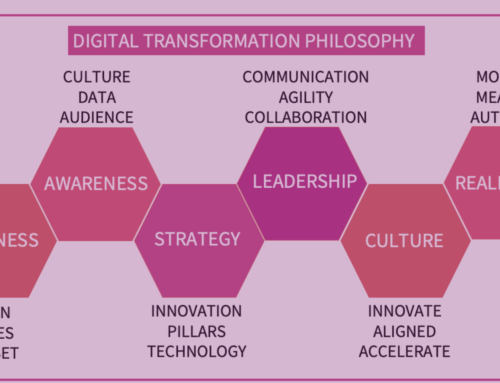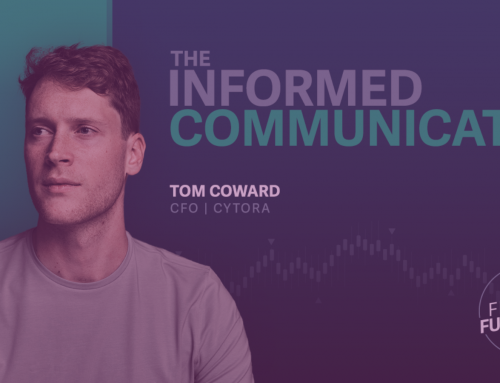Customers are taking control of their data…
For a long time now, building a sustainable business has been all about customer data. When we talk about digital transformation, we’re really talking about the digital technologies we can use to gather, analyse and use data. This allows us to better understand who our customers are and what they want (and sometimes, what they don’t even know they want yet). This in turns enables us develop and provide services more aligned to their demands, and to engage with them the way they want, in the places they hang out.
Data is king.
But customers are becoming more savvy about the data they provide, and believe they are clued up as to their rights about how it is used. Though, as you’ll see below, there are some information gaps.
A June 2021 survey by Adswerve asked 1,000 Americans about their attitudes to sharing their data with brands. It also looked at how familiar they were data privacy laws and their expectations of data privacy and personal ownership online.
The survey revealed that 91% of respondents think control over the information collected about them is important, and 67% claimed to be informed about their privacy rights.
However, 61% were unable to describe their own data privacy rights, and 21% said they’re familiar with and could give a general explanation of the ADPA (American Data Protection Act), which doesn’t actually exist.
In other key findings:
- 39% of respondents said they would be uncomfortable sharing browsing history with brands.
- By comparison, only 26% would be uncomfortable sharing their data with law enforcement.
- 69% of consumers said having control over who can collect their information is “extremely important”.
- Only 13% of respondents were familiar with CCPA, and just 14% were familiar with GDPR.
- 49% have no plans to stop using any of the major platforms due to privacy concerns.
Interestingly, while nearly a third of consumers (32%) said no amount of money could buy all their data – even when a $1 million offer was an option – improving credit and credit card offers were the top incentives that consumers said they would trade a significant amount of data for. I’m sure there’s some logic in there somewhere.
Read the full findings of the survey here.
So what does all this mean for the role of the CMO?
Let’s look first at where the Chief Marketing Officer role fits in at the moment. One thing that hasn’t changed is that the CMO role is all about growing the business.
It’s grown more complicated in recent years, though, due in part to the rise of digital technology and the corresponding growth in importance of the digital chiefs in an organisation.
Even before Covid suddenly and dramatically forced many businesses to shift their focus to online, the emphasis on customer journeys and digital touch points had brought the chief technology officer’s role to the fore. But the pandemic accelerated that, interrupting supply chains and driving a rise in digital and contactless purchasing across virtually every sector.
Marketers had to adapt practically overnight, replacing or cancelling planned campaigns, and finding new messaging that was appropriate to the new reality.
Digital heads tended to have a better handle on the data, potentially pushing the CMO into the background.
Boards demand a lot from their CMOs, expecting them to be flag-wavers-in-chief for the brand, customer champions, and drivers of company culture, as well as growth.
But on the flip side of that, according to research from Deloitte, just 26% of CMOs regularly attend board meetings.

Source: Deloitte/Society for Corporate Governance, Board Practices Report: Common practices across boardrooms, 2019.
CMOs also tend to be the shortest-tenured members of the C-suite.
Executive research firm Spencer Stuart, for example, has identified that CMOs at the top 100 US advertisers are in post for just 41 months on average, compared with 76 months for their chief executives.
Hardly surprising, perhaps, with such high expectations and multiple roles, but low access and influence at the top.
Defining the CMO role in digital transformation – 5 CMO archetypes
In an effort to help CMOs identify how best to focus on their strengths and the Board’s expectations, Deloitte has identified 5 CMO archetypes. In a digital transformation scenario, it’s going to be vital that everyone understands what part the CMO is going to play, and where their priorities lie.
The key is to involve the Board early on, to build your understanding of where they perceive the greatest value, and to be able to use them as sounding boards.

Source: https://www.thinkwithgoogle.com/future-of-marketing/management-and-culture/transforming-the-cmo-role/
- The customer champion. Focussing on a personalised and top-notch customer experience, building campaigns that not only engage, but empower their choices, and using data to deliver measurable business growth.
- The growth driver. Focussed on customer acquisition.
- The innovation catalyst. Constantly ideating, testing and launching new technologies and techniques for transforming the customer experience, creating new offerings and streamlining internal processes.
- The capability builder. A common focus in start-ups or companies needing to change strategic direction. This CMO is hiring and building the right team, with the right marketing knowledge as well as expertise in data and analytics.
- The chief storyteller. Responsible for creating the narratives that build the brand, and engage external (customers) and internal (staff) audiences with authentic, relevant and compelling messages.
Crucially, Deloitte says that it’s important for a board to understand that a CMO cannot be all five at once. You can maybe be effective in two. So it’s essential that you and your Board have a shared, and aligned understanding of what your priorities are going to be.
Returning to the question of customer data, a digitally driven business needs to be able to continue to collect, analyse and act on the insights delivered through data. And that means ensuring that your customers are engaged enough with your brand to have the levels of trust necessary for them to be happy to share their personal data with you.
According to Raconteur, the Zendesk Customer Experience Trends Report 2020 revealed that two thirds of people asked ‘cited customer service as the key driver for brand loyalty, ahead of price, product or service.’ This illustrates the importance of every function of the business to operate to the same levels of understanding of customer demands. If there are holes in customer service – whether through supply chain deficiencies, or poor communications – it doesn’t matter how spot on your marketing messages are.
For the CMO, that means several things. Firstly, you need a seat on the Board, and their broad support and agreement with your role.
With that in place (and bearing in mind which of the 5 archetypes you are focussing on), you’ll need to be:
- leading collaboration across the business, ensuring all customer touchpoints, from digital (everything from web to social media), to the products themselves, connect, meet or exceed expectations and add meaning to the customer experience.
- driving a joined-up approach to marketing across all functions of the business, in which stewardship of the customer experience is shared.
- ensuring consistent, cohesive messaging across everything from campaigns to customer service.
- ensuring your team has the necessary capabilities for long-term strategy development and brand building as well as gaining deep insights into your customers through data collection and analysis.
To achieve that, you’ll need a deep understanding not just of marketing principles, but of every aspect of what your company does, and the landscape it operates in.
A final word on company culture.
As CMO, you may well find your role assuming at least some responsibility for culture within an organisation. In this Think Digital First blog, I explore ways to align company culture with digital transformation.
Ready to produce game-changing digital results in your business?
Subscribe to receive cutting edge insights on digital leadership and transformation- straight to your inbox
We do not sell or share your information with anyone.









